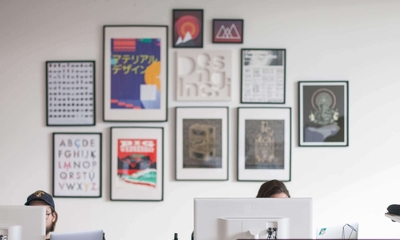
September 24, 2020
COVID-19 has impacted all of our lives, from the way we do work, to how we buy groceries, and to the creative ways in which we maintain communication personally and professionally. These changes have also had a big impact to our economy, with many companies scaling down or going out of business completely. In the majority of sectors, deal flow came to a halt due to the uncertainty of the future. However, the tech industry has been able to adapt and survive as we’re seeing IPOs and M&A continuing.
Dialpad is one such company that completed an acquisition during these unprecedented times. Without being able to get in a room and hammer out the details, it took video and audio conferencing, virtual due-diligence and some humor to get it done. Following is a Q&A with our CEO Craig Walker on the major differences he saw and key takeaways from engaging in M&A remotely.
Q: First, give us a little background on your pre-startup life?
I like to refer to myself as a “recovering lawyer.” I started my professional life as a securities attorney in Palo Alto in the mid-90’s, when I worked on mergers and acquisitions, as well as public offerings and venture financings. One client was Cisco, which was doing a TON of acquisitions at the time, so I was able to get some great experience. After that, I became a venture capitalist. My team focused primarily on startups, investing in them or helping with IPO or M&A activity.
Q: How did you determine now was the time to acquire another company?
Dialpad has always been building toward a “work from anywhere” world. When the lockdown was mandated and non-essential workers were required to work from home, the ability to instantly connect over phone, messaging and video became business-critical. Video conferencing became the go-to method of communication, with people craving connection and collaboration with their teams no matter where they are located.
And, while a majority of businesses, like Google and Facebook, have said employees will continue to work remotely for the foreseeable future, eventually many workers will return to the office and they’ll want to continue to use the same conferencing services and workflows they’ve grown accustomed to while at home. This means businesses must continue to leverage video conferencing as a strategy for their ongoing digital transformation, providing workers with a seamless experience from their living rooms to meeting rooms located in the office. This demand accelerated our product roadmap and opened new possibilities for us.
I’ve known the Highfive team for quite a while, as many of us came from Google and started our companies around the same time. I kept my eye on them for years, so when we were thinking about what comes next for us, we realized Highfive’s best-in-class, in-room video conferencing solutions were an ideal match with Dialpad’s suite of products. Additionally, the number of very skilled engineers and business people at Highfive made an excellent complement to our team, from both a technology perspective, but also culturally, which is even more important for a successful merger. Once we saw this possibility, the leadership team at Dialpad did a ton of due diligence on Highfive’s culture and leadership, and even though we never met in person, we felt very comfortable that this would be a good match and the right timing.
Q: What considerations had to be made to perform virtual due-diligence?
The most important thing in any acquisition is the culture and the people. So, we really took the time to get to know everyone through extended video conferencing meetings in one-on-one and group sessions, as well as just communicating frequently with their team to see how they thought of things and how they looked at the market more generally. We also cared about how they respected each other, how they talked about each other, and how they have passion for what they were doing. All of those things came through clearly in our virtual meetings.
This was not a huge departure from how due diligence works in other situations. It's always very deliberate and detailed, with a number of steps and stages outlined to make sure you learn everything you can about a target company. We even had more conversations than we might have had if we relied only on in-person meetings. We were able to really dig in to see what everyone was thinking and how they may behave in the future as part of the team. One of the biggest things to look for is potential liabilities or unforeseen problems. By having these conversations over video conferencing it really eliminated distractions and strengthened focus.
Virtual due diligence gave us a great sense of Highfive’s culture and the various personalities of team members. I’m happy to say that we felt the strong connection and, even after closing the deal, we see this is a perfect combination of values and vision.
Q: How did you communicate? And how did you manage real-time challenges?
We communicated almost exclusively over either Highfive video or Dialpad, and via email, text messaging, and voice calls. By using real-time channels we were able to really get to know each other and quickly problem-solve or make adjustments. Everything was direct and immediate, so we could negotiate, solve differences of opinions and work through any issues as they arose. Communication was even better than in non-COVID times, and the only big difference was the stronger reliance on video communications.
Q: Did you think anything was lost by not “being in the room”?
Well, we did have one “room where it happened” moment during these discussions. One day, with our CRO and a co-founder, we drove down to meet with Highfive CEO Joe Manuele and other senior leaders from Joe’s team. The five of us practiced social distancing and wore masks, but it was nice to have that little bit of personal interaction. By that point, we were all comfortable with the connection we had made but it was nice to take it to the next level. Honestly, we barely discussed the deal and continued our conversations online over the following weeks, so it was not a necessity for the negotiation. It was just nice to have the one in-person interaction.
Q: How do you see M&A changing going forward?
The deals have gotten larger, nothing else has fundamentally changed. You’re either filling the product gap or hiring a great team, or some combination thereof. Communication is what will change. More and more companies are going to have to get familiar and comfortable with doing acquisitions in a world where you don't get to meet the people face to face. Similarly, all business is going to have to happen without in-people interactions for the foreseeable future. It will not always be like this but definitely the days of having to get on flights and go to far away cities and have dinner with different companies or potential partners of potential acquisition targets certainly won’t be required. We've proven this model can work and other companies embarking on an acquisition or any business decision while being remote can do so with confidence.
Q: Any final tips or lessons learned you can share?
I don't think it matters whether you have a virtual meeting or an in-person meeting. The single most important thing about making an acquisition successful is to have a really good cultural fit and a good shared vision around the opportunities available to both companies. It’s critical that you are really aligned on how you treat people and how your team can expect to be treated and if you can align on those weather in the virtual world or remotely, you will have a much greater chance of success. The only thing that this new normal of virtual creates is a little bit more work to get a stronger sense of someone’s personality over video by no longer having those in-person cues. But if you take the time to pay attention and to listen, you’ll barely notice a difference.







